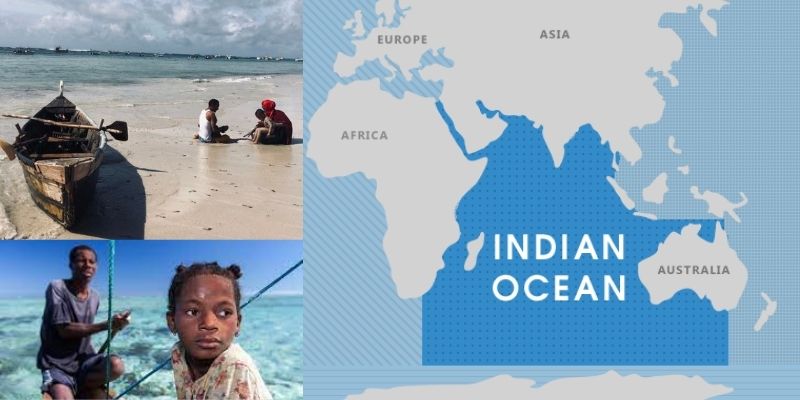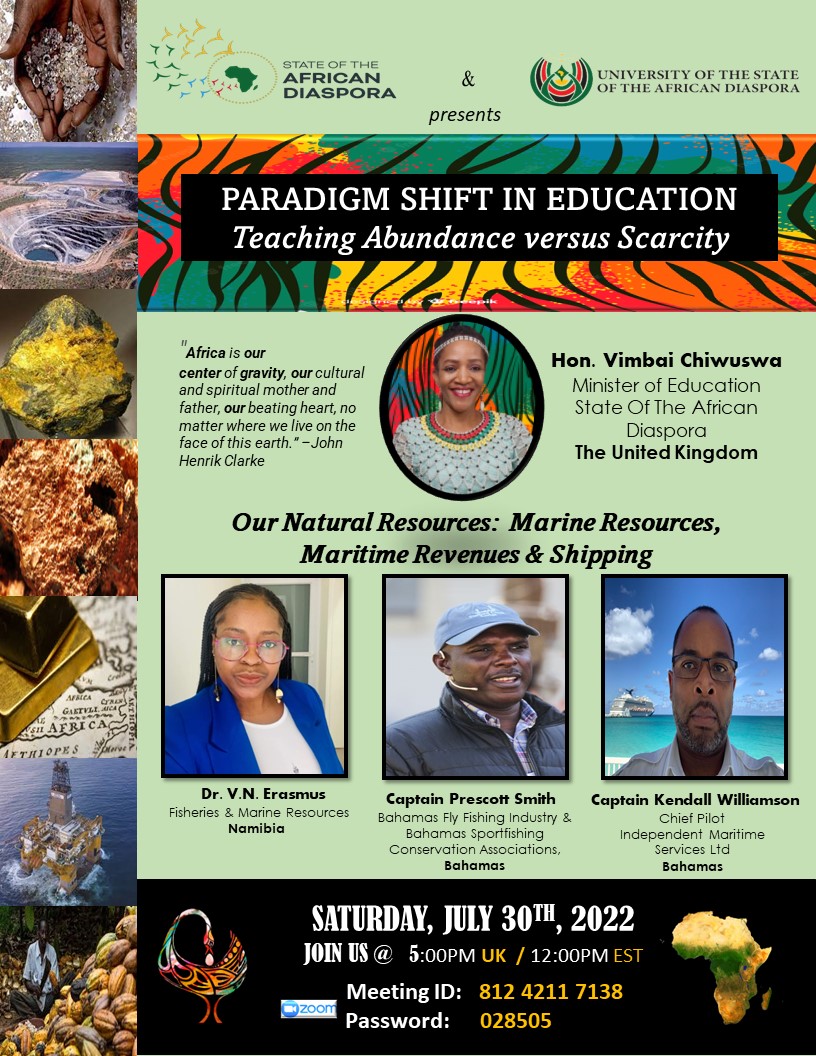
Seen from the Western countries, the Indian ocean is usually perceived as a remote region, in the periphery of the world. In fact, this ocean is surrounded by 4 continents, Africa, Asia, Oceania, Antarctica, where 75 % of the world population reside: the African billion, the Indian billion, the Chinese billion, and the Muslim billion (even if it is not a country or a region in itself), are all located there. That is why the Indian Ocean Sciences Faculty (IOSF) is not about the periphery, from a geopolitical point of view, it is actually central to the modern understanding of the world.
The Indian Ocean Sciences Faculty (IOSF) proposes to offer innovative courses focused on cognitive, geospatial, and temporal knowledge of the different spaces and territories of the Indian ocean. Contrary to popular belief, the Indian ocean has been a space of vast exchanges since prehistoric times.
The colonization of the 16th century, the slave trade, and the second colonization of the 19th century profoundly modified the "Afro-Asian" space by transforming it into the "Indian ocean", revealing "gaps" in historical and geographic continuities. This old world gives way to the new world of the 21st century. In this India-oceanic space, new socio-economic and political forces are taking place. Larges countries have their maritime borders here: India, South Africa. France, the United States, the United Kingdom, and China are also deploying strategies there. The complex political scene offers the possibility of understanding contemporary issues of global and regional geopolitics.
The faculty proposes courses in political sciences, history, geography, environmental sciences, pan African philosophy, and anthropology in order to develop a consciousness of common belonging, to bring together Africa and his African diaspora into a group of women and men capable of stimulating development at the local, national, African continent and Indian ocean levels and to become pan African leaders in this region of the world.
The team is made up of renowned research professors chosen for the quality of their experiences in higher education and research. It is a cosmopolitan team coming from countries bordering the Indian Ocean, Africa, America and the Caribbean, and the African diaspora.
Vu des pays occidentaux, l'océan Indien est généralement perçu comme une région éloignée, à la périphérie du monde. En effet, cet océan est entouré de 4 continents, Afrique, Asie, Océanie, Antarctique, où réside 75 % de la population mondiale : le milliard africain, le milliard indien, le milliard chinois et le milliard musulman (même s'il ne s'agit pas d'un pays ou une région en soi), y sont tous situés. C'est pourquoi la Faculté des Sciences de l'Océan Indien (FSOI) ne concerne pas la périphérie, d'un point de vue géopolitique, elle est en fait centrale à la compréhension moderne du monde.
La Faculté des Sciences de l'Océan Indien propose des cours innovants axés sur la connaissance cognitive, géospatiale et temporelle des différents espaces et territoires de l'océan Indien. Contrairement aux idées reçues, l'océan Indien est un espace de vastes échanges depuis la préhistoire.
La colonisation du XVIe siècle, la traite négrière et la deuxième colonisation du XIXe siècle ont profondément modifié l'espace « afro-asiatique » en le transformant en « océan Indien », révélant des « lacunes » dans les continuités historiques et géographiques. Ce vieux monde cède la place au nouveau monde du XXIe siècle. Dans cet espace indo-océanique, de nouvelles forces socio-économiques et politiques se mettent en place. De grands pays ont ici leurs frontières maritimes : Inde, Afrique du Sud. La France, les États-Unis, le Royaume-Uni et la Chine y déploient également des stratégies. La scène politique complexe offre la possibilité de comprendre les enjeux contemporains de la géopolitique mondiale et régionale.
La faculté propose des cours en sciences politiques, histoire, géographie, sciences de l'environnement, philosophie panafricaine et anthropologie afin de développer une conscience d'appartenance commune, de rassembler l'Afrique et sa diaspora africaine en un groupe de femmes et d'hommes capables de stimuler le développement au niveau local, national, du continent africain et de l'océan Indien et devenir des leaders panafricains dans cette région du monde.
L'équipe est composée d'enseignants-chercheurs de renom choisis pour la qualité de leurs expériences dans l'enseignement supérieur et la recherche. C'est une équipe cosmopolite venant des pays riverains de l'océan Indien, d'Afrique, d'Amérique et des Caraïbes et de la diaspora africaine.

